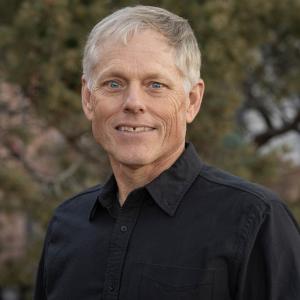Building a Transparent Earth for a Safer Tomorrow: The Changing Landscape of Science and Its Impact on Environmental Policy
The relationship between science and policymaking is complex and multifaceted. Policymakers are faced with the unenviable task of integrating social aspects (economic, social, and political considerations) with the latest scientific research. The Los Alamos National Lab (one of the Department of Energy's 17 National Labs) plays a key role in providing this scientific research. The National Labs tackle the critical scientific challenges of our time - from combating climate change to discovering the origins of our universe - and possess unique instruments and facilities, many of which are found nowhere else in the world. We address large scale, complex research and development challenges with a multidisciplinary approach that is unique in our country's research portfolio (which includes academia and private industry).
During the past five years (or so) we have seen the beginnings of a “fourth age” of scientific research, driven by advances in high performance computers, artificial intelligence/machine learning, and a dramatic increase in the amount and quality of data. This fourth age of research will have profound implications for the way science informs policy decisions at the national level. In this talk, I will review the history of science at LANL, show several examples of the current state-of-art earth science research, and discuss how the latest computing resources at LANL are providing a way to build a metaphorical "Transparent Earth" which allow predictions of earth processes at unprecedented scales and resolution. Looking forward, this new frontier of earth science research will fundamentally change both the scientific questions we can address and the type of information that will be available for policy development and decisions.
About the Speaker

David Coblentz is a Staff Scientist and Group Leader in the Earth and Environmental Sciences Division at the Los Alamos National Laboratory. His group includes about sixty scientists working on the geophysical aspects of national security earth science in seismology, computational geomechanics, and remote sensing. He conducts research in solid earth geophysics, geodynamics, and tectonic stress modeling - specifically the interface between the surface of the earth and underlying geologic processes. He is also active in tectonic geomorphology research, specializing in the quantitative analysis of topographic fabric and its relationship to the underlying geology and regional distribution of biodiversity. His most recent work focuses on speculative geodynamics research which seeks linkages between global-scale plate tectonics and geoecology. In his free time, David enjoys running long distances in the mountains and fostering kittens. He has a B.S. in Physics from the University of California, San Diego, a M.S. in Geophysics from Boston College, and a Ph.D. in Geophysics from the University of Arizona.
Environmental Speaker Series
The Environmental Speaker Series is hosted by the College of the Environment at Western Washington University.
The Series is free and open to the public. Talks are held each Thursday at 4:30 pm in Academic Instructional Center West room 204 - AW-204. Talks will also be streamed via zoom. Register with the Alumni Association for the zoom link. Paid parking is available in lot C.
Learn more about the Environmental Speaker Series
Subscribe to the Email List